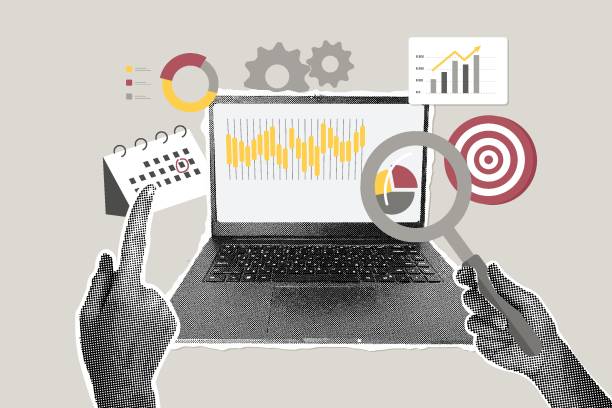Navigating Financial Landscapes: Embracing Innovation in Modern Economics
The Role of Technology in Modern Economics
The financial landscape is undergoing rapid transformation, driven largely by technological advancements. The integration of digital technologies in finance has led to the creation of FinTech, which is reshaping everything from banking to investment strategies. Financial institutions are now leveraging artificial intelligence, blockchain, and big data analytics to offer more personalized and efficient services to their clients. As the pace of innovation accelerates, it is crucial for businesses and individuals alike to stay informed about these changes to remain competitive in the global market.

Financial technologies are also making finance more accessible to a broader audience. Innovative platforms provide tools that enable users to manage their financial portfolios with ease, from anywhere in the world. For instance, the concept of gamified investments and savings is becoming increasingly popular. Such innovative financial games, like Plinko, not only engage users but also educate them about risk management and strategic planning, bringing a new dimension to financial literacy. As more people embrace these innovations, the economic landscape continues to evolve, offering new opportunities and challenges.
Economic Policies and Innovation
Governments and policymakers play a critical role in fostering innovation in modern economics. By creating an environment conducive to technological advancement and entrepreneurship, governments can stimulate economic growth and enhance global competitiveness. Policies that encourage investment in research and development, protect intellectual property, and support infrastructure improvements are essential to sustaining economic innovation. Additionally, regulatory frameworks need to evolve to address the complexities of digital finance and protect consumers while promoting growth.
In recent years, economic policies have increasingly focused on the digital transformation of industries. This shift requires a delicate balance between encouraging innovation and ensuring a level playing field for small and large enterprises. Governments that successfully navigate this balance are likely to foster resilient economies capable of adapting to future challenges. The emphasis on sustainable and inclusive growth further highlights the need for innovative solutions that cater to diverse economic needs.
Financial Inclusion Through Innovation
One of the greatest benefits of modern economic innovation is its potential to enhance financial inclusion. Emerging technologies offer solutions that can reach previously underserved populations, providing them with access to financial services such as credit, savings, and insurance. Mobile banking and peer-to-peer lending platforms are examples of advancements that have made significant strides in breaking down barriers for those traditionally excluded from the financial system. By harnessing these innovations, economies can promote greater equity and empower communities.
Moreover, the rise of digital currencies and decentralized finance (DeFi) presents new opportunities and challenges for financial inclusion. While these technologies offer the promise of greater autonomy and reduced transaction costs, they also raise questions about regulation, security, and accessibility. Ensuring that these innovations are designed with inclusivity in mind will be crucial in realizing their full potential and addressing disparities within economic systems.
Exploring Plinko and Its Economic Impact
Plinko.games represents a captivating intersection of entertainment and finance. This innovative platform combines elements of gaming with financial strategy, providing users with a unique experience that engages and educates simultaneously. As players interact with Plinko, they gain insights into probability and strategic decision-making, mirroring aspects of financial investments in a dynamic and interactive environment.

The impact of such platforms extends beyond entertainment, influencing how people perceive and manage their finances. By gamifying financial concepts, Plinko contributes to broader financial literacy and encourages users to think critically about economic decisions. In doing so, it plays a part in shaping the future landscape of both gaming and finance, illustrating the transformative power of innovation in modern economics.
